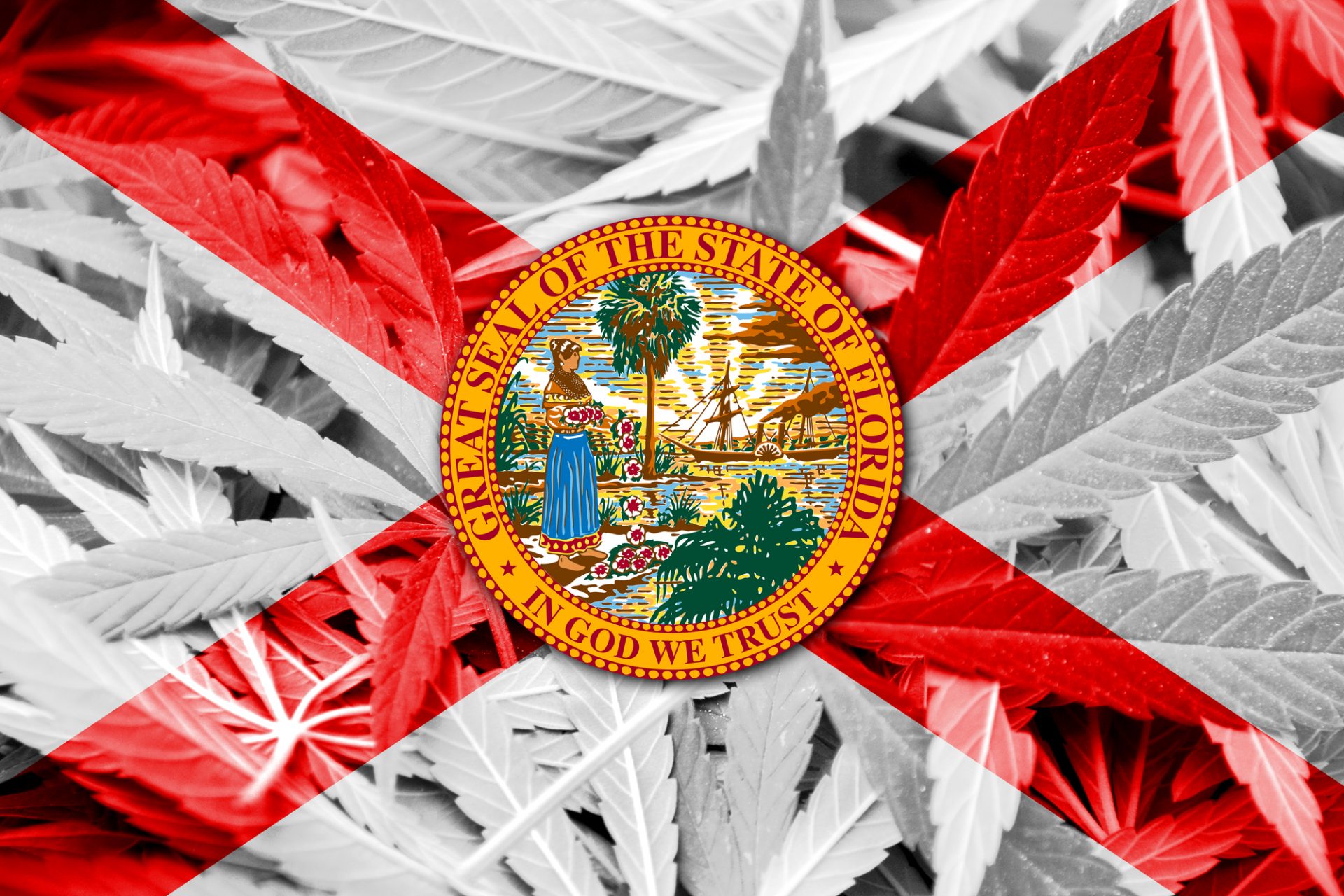When people think of legal cannabis markets in the United States, many conjure images of the Emerald Triangle, a region in northern California which is the largest cannabis producing region in the country. Others may think of Colorado, another pioneer concerning cannabis legalization and consumption. California and Colorado deserve such recognition. After all, California and Colorado took the number one and number two spots, respectively, with more cannabis sales than any other state.
Few would consider Florida, however, despite the fact that the Sunshine State boasts one of the largest and most lucrative cannabis programs in the country, the fourth largest market, only behind California, Colorado, and Michigan.
$1.2 billion
Florida sold approximately $1.2 billion worth of medical cannabis in 2020. That is pretty impressive considering Florida only allows medical cannabis while California, Colorado, and Michigan have both medical and responsible adult use programs. That certainly doesn’t mean to imply that Florida’s medical marijuana program isn’t without problems.
Ammendment 2
The citizens of the sunshine state legalized medical marijuana for qualified patients via ballot initiative, Amendment 2, in 2016. Amendment 2 passed with an overwhelming majority. Over 71% of the statewide electorate voted to legalize medical cannabis in Florida.
Five years later, over half a million Floridians are registered as qualified patients with the Office of Medical Marijuana Use (OMMU). Twenty-two Medical Marijuana Treatment Centers (MMTCs) have been licensed to cultivate, process, and dispense medical cannabis. Currently only fourteen MMTCs are actively providing cannabis medicines to patients. The remaining MMTCs, while licensed, are building out their operations. MMTCs are required to manage all facets of their operations in-house, a practice commonly known as vertical integration.
Vertical Market
Florida’s required vertical operations and the regulatory framework for MMTC applications and licensure has come under attack by many within the cannabis community as monopolistic, preferential, and ultimately unconstitutional.
Lawsuits
There have been a number of lawsuits arguing the unconstitutionality of Florida’s vertically integrated market, none more prominent than the Florigrown case. Tampa Bay’s “strip club king”, Joe Redner, representing Tampa-based Florigrown, originally brought a lawsuit against the Florida Department of Health in 2018 following the denial of a Medical Marijuana Treatment Center License. Leon County Circuit Judge, Charles Dodson, sided with Redner and Florigrown, stating that the law did not effectively carry out the intent of Amendment 2.
Despite the favorable ruling in which Judge Dodson imposed a temporary injunction requiring the state to issue a license to Florigrown, begin issuing additional licenses, and ultimately restructure the law to allow for horizontal integration and a fair and competitive medical marijuana market, the state, under the leadership of then Governor Rick Scott, appealed the decision.
Florigrown and the Florida Supreme Court
Many were hopeful that Florida, under the leadership of Governor Ron DeSantis (R) FL, elected in 2018, would have dropped the appeal, as the newly elected Governor himself labeled our cannabis market structure a “cartel.” Unfortunately, and without reason, Governor DeSantis has since flipped his stance, now reaffirming the position of his predecessor concerning vertical integration.
The Florigrown case has made its way to the Florida State Supreme Court, and a ruling is expected to take place before the end of the year. Some industry insiders say we could see a decision on the case sooner rather than later. We will certainly keep you posted.
The (Expensive) Florida Market
It is the monopolistic nature of vertical integration that has allowed Florida to take the number four spot in total cannabis sales, as Florida’s MMTCs have limited competition and are able to charge top dollar for their cannabis medicines. Florida’s cannabis medicines are some of the most expensive in the country. When comparing the cost of similar cannabis products, Florida’s MMTCs are charging double, triple, oftentimes quadruple the cost as compared to providers in California and Colorado, for example. California and Colorado are not restricted by vertical integration.
THC Limits
Most recently, certain representatives in the Florida House have been pushing for a 10% limit on THC for medical cannabis flower, a 60% cap on THC for cannabis concentrates, as well as other arbitrary restrictions. Opponents call such a limit a “THC tax,” one that Florida’s medical cannabis patients can hardly afford. On top of already paying some of the highest prices for cannabis medications, if such legislation were to pass, patients would be forced to increase their dosages in order to receive the required effects necessary to treat his or her illnesses. Needless to say, they will have to purchase more medicine.
Florida has seen similar proposed legislation in the past. Fortunately, while it made its way through the House, it was ultimately dead on arrival when it reached the Senate. We have little reason to believe that the senate will not act accordingly in the future, and will shoot down any legislation that seeks to cap THC percentages for medical cannabis.
"Corporate Cannabis Cartel"
So, while the Sunshine State may have one of the most lucrative cannabis markets in the country, it is Florida’s medical cannabis patients who are paying for it, burdened with what has been dubbed a “corporate cannabis cartel,” and paying some of the highest prices for cannabis medicines in the country.





